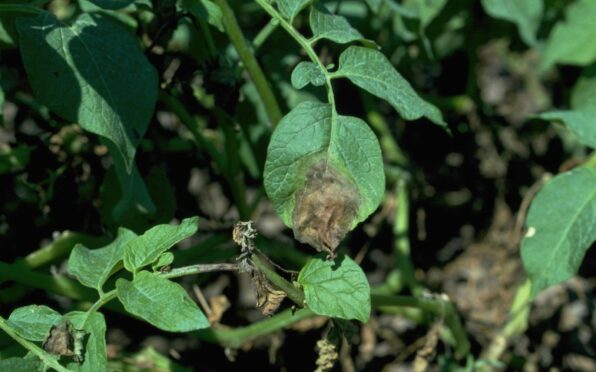Scottish seed tattie producers have been offered a glimmer of hope that some exports to the EU might be able to resume next year – and a signal that government funding for crucial plant monitoring could be imminent.
Professor Gerry Saddler, Scotland’s chief plant health officer, told the Scottish Agronomy conference in Perth that while talks with the European Commission on reopening pre-Brexit trade felt like hitting a brick wall, the possibility of a new arrangement had opened up.
“The Canadians have a very limited relationship in which certain provinces – particularly Prince Edward Island – can send a limited number of seed potatoes into the EU,” he said.
“This might be something we wish to explore further with the Commission.
“They have not dismissed the idea out of hand, so there may be some legs in terms of opening up the market – at least to a limited extent.
However, Prof Saddler said talks with officials continued to be “very difficult” and he also warned that a Canada-style arrangement would fall far short of an ideal solution.
“Canada is subject to limitations,” he said.
“Only certain provinces and named varieties (can be exported), and Canadian potatoes can only go to certain member states such as Portugal, Greece and Cyprus, whereas we would like to get back into the complete market and have no restrictions in terms of varieties.
“We would also like the whole of Scotland (to be included) rather than have some regional agreement.”
Meanwhile, Prof Saddler indicated that the Scottish Government could be about to announce short-term funding to ensure blight and aphid monitoring and emergency authorisations of plant protection products will continue following the demise of ABDH Potatoes and AHDB Horticulture.
“AHDB was far from perfect, however they provided certain vital services which would be catastrophic if they were to stop,” he said.
“Nothing is concrete, but the Scottish Government has recognised that if all the work were to stop from the end of March this year, losing those early warning systems would impact seriously on the industry.
“I am optimistic we will find a way to provide some short term funding to keep these activities going.”
In response to a question on the likelihood of the Scottish Government permitting the continued use of glyphosate, Prof Saddler said the value of such a chemical was well understood.
He added: “My understanding is it can be used until 2025 then there will need to be some sort of review of the use of herbicides such as glyphosate,
“Then the evidence will need to be taken into account in terms of the environmental impact a chemical of that nature has on biodiversity, so it’s a balancing act.”


